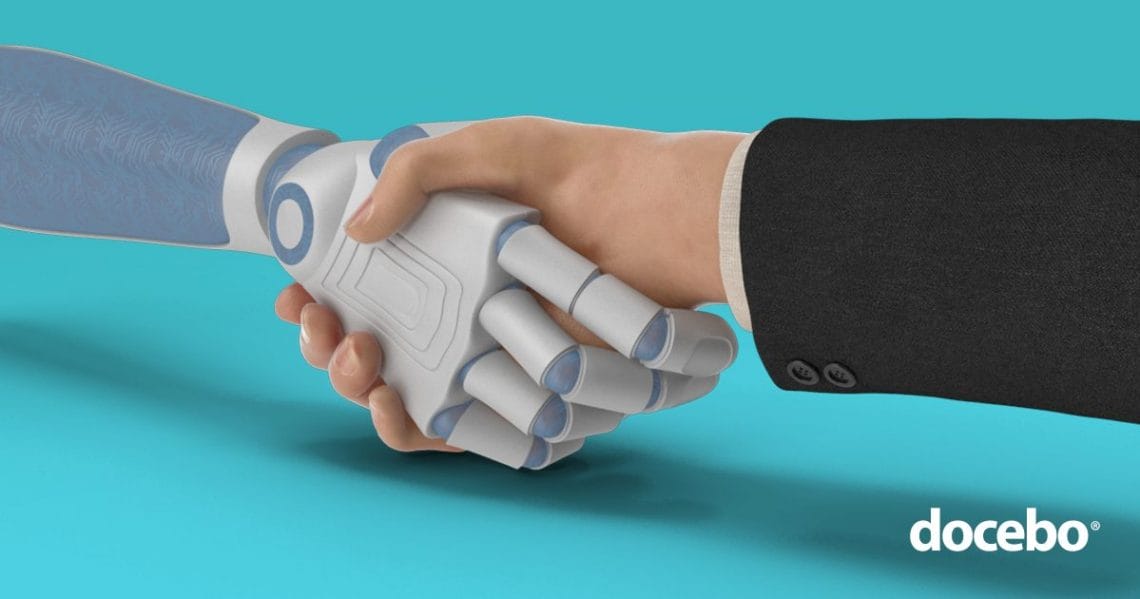
What do people really mean when they talk about Digital Transformation?
After analyzing some of the most popular studies on the subject to date, it turns out that half of the terms that most often arise are about people and not technology.

Word cloud of the most frequent words in Digital Transformation studies
(Word size depends on its frequency, yellow terms being those directly related to people/HR/learning)
The acceleration of technology has placed Digital Transformation at the top of every CEO’s agenda. A recent McKinsey survey revealed that when it comes to Digital Transformation, “success is more likely when organizations scale up their workforce planning and talent development”.Indeed, in our fast-paced and increasingly competitive environments, companies that manage to attract digital talent and develop the right skillset will stand out.
In a situation where people are always in the need of developing new skills, training alone won’t cut it anymore. You need to have an environment where people can turn every project, every interaction, every place, every relationship into an opportunity for learning and experimenting. In other words, you need to develop your Learning Culture.
Learning Culture: the path to Digital Culture
The effects and benefits of Learning Culture reach far beyond L&D. As Digital Transformation cannot happen without diffusing “a culture that supports change, Learning Culture contributes to an environment that:
Fosters Learning Agility: In the Future of Job Report, the World Economic Forum explains that “by 2022, the skills required to perform most jobs will have shifted significantly”. To acquire these new skills, including digital fluency, it is essential that employees become Agile Learners to develop a habit of learning from experience, from their peers, from their successes and failures. To strengthen this, the work environment should nurture a Culture of Test & Learn that pushes everyone to innovate, try new ways of doing things, and learn from mistakes.
Supports Talent Management: “90% of employers anticipate more competition for talent” according to a study from Bain & Company. The war for digital talents will only intensify. Now it is critical to not only attract these talents, but also to keep them engaged by providing them with a culture that meets their expectations…and millennials’ #1 expectation is “learning every day”.
Reveals Digital Heroes: Digital transformation, like any change, is 10x harder if imposed from the top and not accepted by all. Every organization already has digital experts, but many are not identified as such. These individuals probably have as much influence for digital transformation as the company’s executives. They need to have the proper tools and recognition to broadly share their expertise.
Learning Culture: how to improve it?
There remains little doubt about the importance of having a strong Learning Culture. But how do you improve it? We believe Learning Culture should become a Key Performance Indicator to monitor. To do so we have developed a framework to measure Learning Culture organized around what we have found to be four key dimensions:
- Managers Involvement in the development of their teams
- Resources & Development opportunities
- Sharing & Learning from others
- Learning Agility
Our ambition has been to create a highly actionable approach that would make it possible to easily identify the main levers for improvement.
